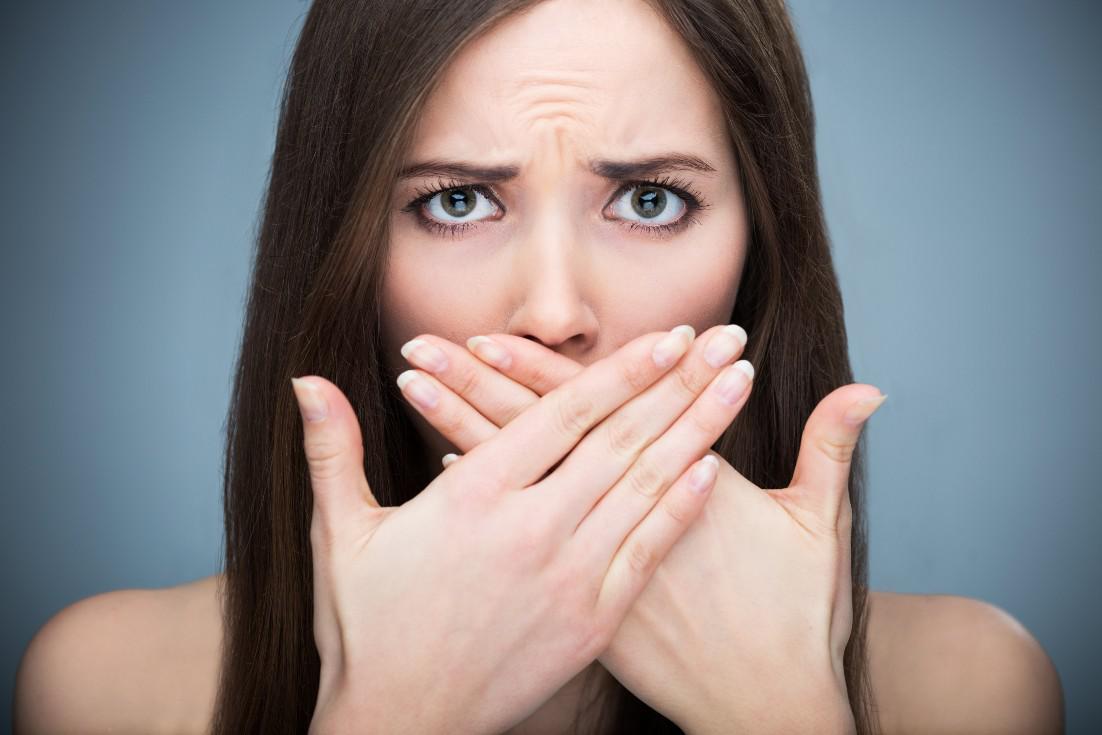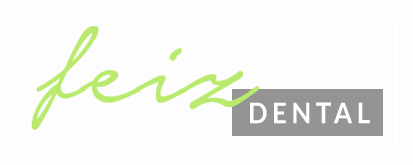Mask or no mask, bad breath is never welcome company. Halitosis not only makes for embarrassing social interactions, but it can also be a sign of health issues.
Here are the most common causes of bad breath and tips to help prevent them:
Foods – This one can be a double whammy. 1) The breakdown of food particles in and around your teeth can increase bacteria and cause a foul odor. 2) Components from food are absorbed into the bloodstream and carried to the lungs, where their residual odor comes out of your mouth with every breath.
 Prevention Tip: Good oral hygiene, which includes regular brushing and daily flossing, is the best way to prevent bad breath food particles. Try carrying a travel toothbrush and toothpaste with you or keeping one at the office, to stay on top of brushing throughout the day…. And, while we wouldn’t dare suggest skipping your morning coffee or forgoing garlic bread at a spaghetti dinner, eating a balanced diet that includes vegetables and limits sugar and alcohol, can help mitigate residual odor.
Prevention Tip: Good oral hygiene, which includes regular brushing and daily flossing, is the best way to prevent bad breath food particles. Try carrying a travel toothbrush and toothpaste with you or keeping one at the office, to stay on top of brushing throughout the day…. And, while we wouldn’t dare suggest skipping your morning coffee or forgoing garlic bread at a spaghetti dinner, eating a balanced diet that includes vegetables and limits sugar and alcohol, can help mitigate residual odor.
Tobacco – Not only do smoking and chewing tobacco cause their own unpleasant mouth odor, but users are also more likely to have gum disease, which is another source of chronic bad breath.
Prevention Tip: There’s no middle ground on this one. Quitting, or better yet, never starting smoking is the only way to combat the litany of health concerns caused by tobacco. To get help quitting, visit https://smokefree.gov/ for tips and resources.
Dry Mouth – Saliva works 24/7 to remove odor-causing particles in your mouth. Dry mouth, or Xerostomia, is a condition that occurs when saliva production is decreased. The resulting dry environment is an ideal breeding ground for anaerobic bacteria, which leads to bad breath. Dry mouth naturally happens when we sleep (i.e., morning breath), but in some instances it can be chronic.
Prevention Tip: Ensure that you stay hydrated by drinking plenty of water throughout the day and avoiding sugary foods and beverages that contribute to dry mouth. You can also increase saliva production by eating healthy foods that require a lot of chewing, like carrots or apples. Chewing sugar-free gum is another way to keep your mouth moist. Dry mouth can be caused by certain medications, salivary gland problems, or by simply breathing through your mouth.
Poor Dental Hygiene – Plaque forms when the bacteria in your mouth mixes with starchy or sugary foods (i.e., milk, bread, etc.). It’s a colorless, sticky film that coats your teeth, and if not brushed away, can irritate your gums, eventually leading to gum disease (plaque-filled pockets between your teeth and gums). The ridges in your tongue also trap bacteria that produce odors.
Prevention Tip: We can’t say this enough – a good oral hygiene regimen is critical to overall health. The best way to remove odor-causing bacteria is to brush your teeth and tongue at least twice a day and floss daily.
Contact Our Office
If you regularly experience bad breath, review your oral hygiene habits. Try making lifestyle changes, such as brushing your teeth and tongue after eating, using dental floss, and increasing your water intake. If your bad breath persists, it’s a good idea to see our dental team. Although most bad breath is caused by odor-causing bacteria, there are other health conditions that may be contributing to the problem. If you have questions or are experiencing these symptoms above, please contact our practice.


